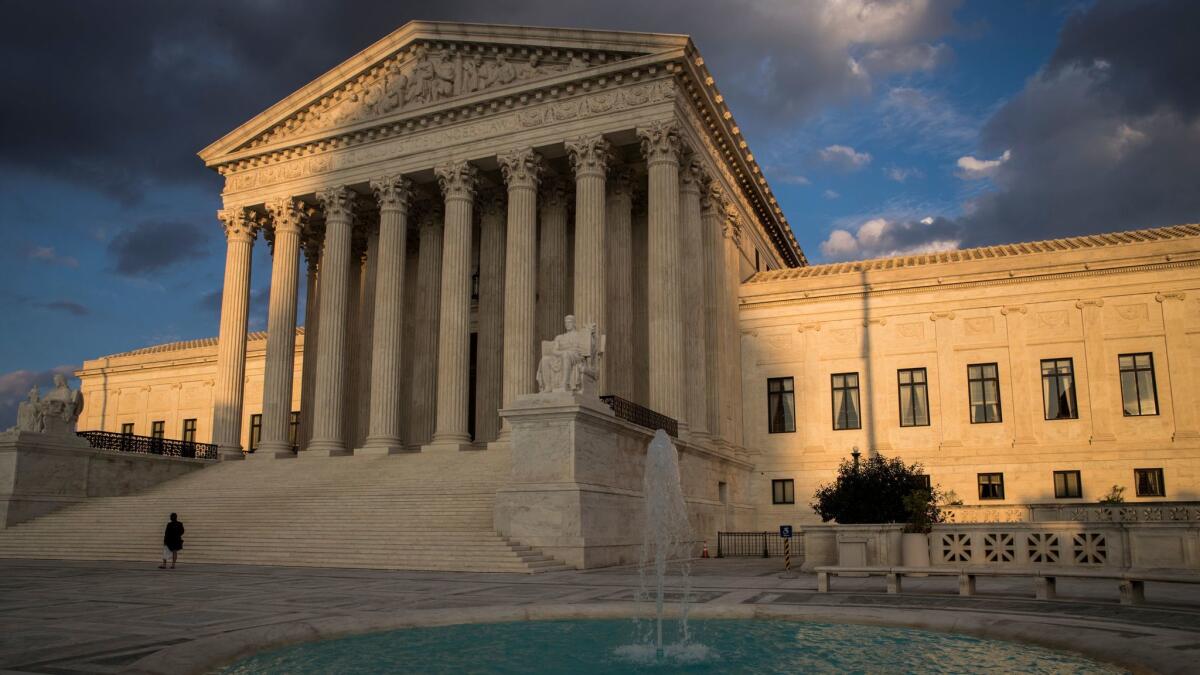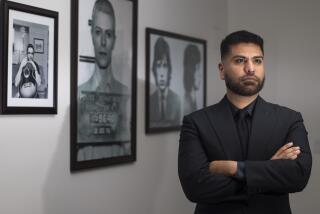Editorial: If a defendant says he’s innocent, his lawyer can’t say he did it

The 6th Amendment says that a person accused of a crime has the right to the “assistance of counsel for his defense.” But what if that “assistance” takes the form of an admission by a defense lawyer that his client committed the crime — even though the client insists he is innocent?
A lawyer for a Louisiana man named Robert McCoy made just such a startling admission when McCoy was tried for the 2008 murders of the mother, stepfather and son of his estranged wife. The lawyer, Larry English, did so in hopes of sparing McCoy — who he told the jury suffered from mental problems — from the death penalty.
Alas, this audacious strategy proved unsuccessful, and McCoy was convicted of three counts of first-degree murder and sentenced to death. This week, lawyers for McCoy asked the U.S. Supreme Court to grant him a new trial at which he can assert that the murders were actually committed by corrupt police officers. The court should do so.
There is much wisdom in the old saying that a defendant who represents himself has a fool for a client, and it’s usually equally foolish for a defendant to try to dictate trial strategy to an attorney. But even if that is true as a general proposition, in this case the lawyer’s strategy was a disaster.
Furthermore, even if admitting that McCoy had committed the murders had been a stroke of strategic genius, English shouldn’t have been allowed to substitute his judgment for his client’s on the fundamental issue of whether he actually committed the crime.
Several justices at Wednesday’s oral argument seemed sympathetic to McCoy, but some also worried that a decision in McCoy’s favor could lead to defendants objecting to less significant tactical decisions by their lawyers and in the process undermining the effectiveness of their defense.
But Seth Waxman, McCoy’s lawyer, suggested that the court could rule for McCoy without inviting defendants to second-guess their attorneys about which evidence, arguments and witnesses they would employ at trial. That’s a reasonable distinction.
In defending the Louisiana Supreme Court’s ruling, Louisiana Solicitor General Elizabeth Mural emphasized the fact that English was trying to spare McCoy’s life. She suggested that lawyers should be able to overrule their clients’ wishes “in a narrow class of death penalty cases.”
Put aside the fact that this dilemma wouldn’t arise if capital punishment were abolished, as it ought to be. The fact remains that what matters in this case is what McCoy wanted, and his paramount goal, as Justice Elena Kagan noted, was “to insist until my last breath that I didn’t kill my family members.” He is entitled to be represented by a lawyer who won’t contradict him.
Follow the Opinion section on Twitter @latimesopinionand Facebook
More to Read
A cure for the common opinion
Get thought-provoking perspectives with our weekly newsletter.
You may occasionally receive promotional content from the Los Angeles Times.










